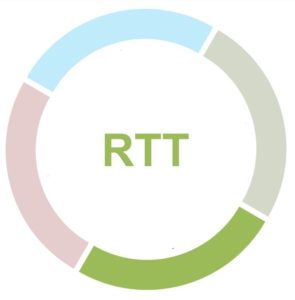
Radiation therapists provide ongoing patient assessment to ensure quality care
Importance of ongoing patient assessment
- Radiation therapists have daily contact with their patients; therefore, they have the opportunity to build relationships over the continuum of care and gain understanding of the patient’s requirements and preferences for care.
- This contact allows close observation of the patient’s progress through their treatment and opportunity to continually and systematically1:
- Assess signs, symptoms, and well-being
- Recommend interventions
- Evaluate the effectiveness of interventions
- Follow up
- Document
- Effective patient assessment in a radiation therapy setting has been demonstrated to improve patient outcomes2.
Ongoing assessment in practice
- Radiation therapists are responsible for assessing each patient daily prior to, during and after treatment delivery3,4.
- The assessment should be factual and objective while incorporating the patient’s self-reported symptoms5
- Information is gathered from the patient through observation and inquiry
- A systematic, site specific assessment is essential
- A daily assessment of patients includes (but is not limited to) assessment of3,4:
- Symptoms
- Side effects
- Emotional well-being
- Informational needs
- The specific elements and actions taken to assess a patient are bounded and defined by the Radiation therapist’s scope of practice.
Documentation
- Radiation therapists initiate contact, make referrals, follow up and document when patients require referral to other healthcare providers.
- All information received from and given to the patient is thoroughly documented in the patient’s radiation treatment record and/or electronic medical record.
- Prior to daily treatment delivery, Radiation therapists review the patient’s radiation treatment record and/or electronic medical record for notes from the healthcare team
- Evidence-based validated toxicity scoring tools are recommended for use in addition to descriptive patient care notes
- All actions taken by Radiation therapists are also documented.
Related Posts
-
Les radiothérapeutes assurent une évaluation continue du patient afin d’offrir des soins de qualité
-
-
References
-
Washington CM, Leaver D. Principles and Practice of Radiation Therapy. 4th ed. Elsevier Canada; 2016.
-
Gagliardi AR, Dobrow MJ, Wright FC. How can we improve cancer care? A review of interprofessional collaboration models and their use in clinical management. Surg Oncol. 2011;20(3):146-154.
-
Canadian Association of Medical Radiation Technologists. Competency Profile, Radiation Therapy. January 2014. Available from: http://www.camrt.ca/wp-content/uploads/2018/08/Modified-Therapy-profile-Final-.pdf. Accessed 24 Sept 2018.
-
American Society of Radiologic Technologists. The Practice Standards for Medical Imaging and Radiation Therapy. ASRT. June 2017. Available from: https://www.asrt.org/docs/default-source/practice-standards-published/ps_rt.pdf?sfvrsn=2. [Accessed 27 Nov 2017]
-
Kotronoulas G, Kearney N, Maguire R, et al. What is the value of the routine use of patient-reported outcome measures toward improvement of patient outcomes, processes of care, and health service outcomes in cancer care? A systematic review of controlled trials. J Clin Oncol. 2014 May;32(14):1480-1501. DOI: 10.1200/JCO.2013.53.5948.
